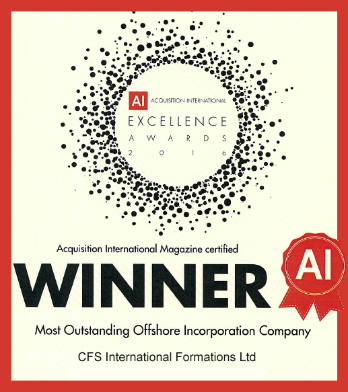Setting up a limited company is a popular choice for business owners in the UK due to its tax efficiency, separation of personal assets, and limited liability protections. This guide outlines the essential steps, legal responsibilities and considerations, and strategic decisions required to establish a limited company and ensure compliance with UK regulations.
What is a Limited Company?
A limited company is a type of business entity that separates personal and company assets, creating a legal distinction between the two.
The primary benefit of forming a limited company over being a sole trader is limited liability. Where sole traders are required to supplement business financial shortcomings and the company's debts with their personal finances, assets and belongings, limited company owners do not. Within limited companies, the owners are only personally liable for the amount they have already invested within the business, meaning should difficulties arise, your private assets are safe.
Who benefits from a limited company?
Alongside the protection of personal finances and assets, limited companies also offer higher take-home pay than that of sole trader companies as you typically will pay yourself within the mix of salary and dividends, meaning you'll have as little personal tax as possible as most of your income will come from dividends, which is taxed at a much lower rate than salary.
For sole traders, you're taxed a minimum of 20%* on everything you earn over the tax threshold, so a limited company formation can be beneficial to maximising your take-home pay.
Advantages of a Limited Company
Setting up a limited company provides multiple advantages over other business structures, especially for those prioritizing financial protection and tax benefits. Key benefits include:
Legal Distinction: The company is a separate legal entity, protecting personal assets from liquidation should the business experience financial distress.
Tax Efficiency: As mentioned, limited companies benefit from favourable tax rates, such as the flat corporate tax rate of 19%*, which is often lower than personal income tax rates, which are usually 20%* or more.
Professional Appearance: Operating as a limited company can enhance credibility with clients and suppliers.
Ownership Flexibility: Shares can be issued to bring in new investors or distribute ownership among multiple individuals.
The Difference Between a Public and Private Limited Company
Understanding the distinction between a private and public limited company is essential when setting up your business.
A PLC offers shares to the public through a stock exchange, allowing for potentially larger capital investments. However, a PLC must meet stricter financial regulations, including a minimum share capital of £50,000 and multiple shareholders. PLCs are also required to file accounts within six months of their financial year-end.
Unlike a PLC, a Ltd does not publicly trade shares, limiting ownership to a maximum of 50 shareholders and offering additional significant control over business activity and proceedings than a public limited company.
An Ltd is generally more suitable for small to medium businesses that prioritize privacy and control over raising large amounts of capital whilst enjoying slightly more lenient filing deadlines and governance requirements.
How to Set Up a Limited Company
1: Choose Between Public and Private Limited Company Status
When setting up a limited company, you need to ensure your company name is professional, memorable, descriptive and reflects your business's brand and industry. You can check if your preferred company name is available and within guidelines by using a company name checker here.
2: Choose Your Limited Company Name
When setting up a limited company, you need to ensure your company name is professional, memorable, descriptive and reflects your business's brand and industry. You can check if your preferred company name is available and within guidelines by s by using our company name checker.
3: Appoint A Company Director/s
Directors manage the company's operations and make critical decisions on its behalf. A private limited company requires at least one director, while a public company needs at least two. Directors have specific legal responsibilities and they must act in the best interests of the company. The main responsibilities of a limited company director include but are not limited to:
- Following the rules set in the articles of association.
- Keeping company records and reporting any changes to business practices or records.
- Informing shareholders of any instances where they may benefit personally from a company transaction.
- Paying corporation tax and tax returns.
4: Decide on Your Shareholders
At least one shareholder needs to be determined for a limited company, ultimately, your shareholders will own your business. If the company is private, you can choose to keep shareholders within a limited group, such as family or close associates. Be aware that shareholders have rights to dividends and certain control over the company's strategic decisions.
5: Create Key Company Documents
Creating essential documents, including the Memorandum of Association and Articles of Association, is a legal requirement:
- Memorandum of Association: This document confirms the subscribers' intent to form the company and details initial shareholders.
- Articles of Association: This sets out rules for running the company, including decision-making processes, directors’ powers, and restrictions if applicable. Having clear, customized articles can prevent future disputes and clarify operational protocols.
6: Check the Records You’ll Need to Keep
Maintaining accurate records is legally required for all limited companies. This includes documentation of company finances, shareholder decisions, directors’ details, and financial accounts. In the UK, companies must keep records for at least six years, and poor record-keeping can lead to penalties.
7: Register Your Limited Company with Companies House
For your business to be able to legally operate, you must register your business on the Companies House website. This involves submitting your chosen company name, details of directors, shareholders, registered office address, and standard industrial classification (or SIC), which tells the Companies House what your business does. Upon approval, Companies House will issue a Certificate of Incorporation, officially establishing your limited company.
8: Add Corporation Tax Services to Your Business Tax Account
Once registered, you need to set up Corporation Tax services. This process involves gathering essential details like your registration number, the business start date, and your Unique Taxpayer Reference (UTR).
Once enrolled, HMRC will send an activation code to your registered office. Timely activation ensures your business meets all tax filing and payment deadlines, avoiding late fees and penalties.
Filing and Reporting Obligations
Whilst setting up a limited company, you must comply with specific filing and reporting requirements annually. These include:
- Annual Confirmation Statement: This annual statement confirms the company information with the Companies House and helps to ensure that the information about your business proceedings remains accurate. It is a verification of key business details which must be completed annually and not doing so could result in legal action against the company director/s and even removal of the company from the Company House register.
- Filing Annual Accounts: Summarizes the company's financial position, which must be filed within nine months of the company’s financial year-end (six months for public companies).
- Company Tax Return: Even if there is no tax liability, a Company Tax Return is mandatory, detailing income, expenses, and any Corporation Tax due.
Setting up a limited company in the UK offers significant advantages, from limited liability protection to potential tax savings. By following these steps and maintaining compliance, you’ll be well-prepared to operate a limited company that protects personal assets while enabling business growth.
Why Use CFS for Your Private Limited Company Formation?
When you conduct your company formation through CFS, we can help you meet regulatory requirements and assist you with other responsibilities to ensure a smooth and efficient formation.
Unlike registering a limited company yourself through the Companies House, utilising a company formation agent like CFS allows you to register your company quickly and efficiently, so you can start trading as soon as possible. By using a trusted company formation agent, you’ll benefit from expert guidance, tailored support, and quick processing, helping you establish your business efficiently.
Here’s why business owners trust CFS:
- Dedicated Account Managers: When you set up a limited company through CFS, you submit all the required details online, and our dedicated experienced account managers handle the rest, ensuring all your information is correct to ensure approval on your first application.
Beyond registration, CFS offers ongoing assistance to help you navigate regulatory requirements and maintain compliance, giving you peace of mind as your business grows.
- Fast, Simple Formation: Registering through CFS is fast and straightforward. Most applications are processed within 3 to 24 hours, much quicker than the 24-hour standard of Companies House or the 8–10 days required for postal submissions.
- Choose the Right Package for You: To help ensure your formation goes smoothly, CFS offer a wide range of packages with varying levels of support and guidance.
CFS offer packages from as little as £67.95, providing you with everything you need to form your limited company, up to more extensive packages which provide the highest levels of service, convenience, and guidance for your formation.
Need help setting up your new business? Speak to a member of the team at CFS or form your company online from £53.50.
*rates correct as of December 2024

